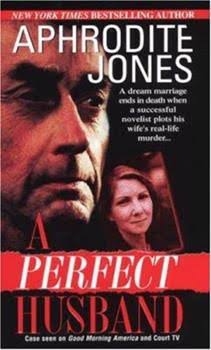It’s been more than a week since I watched the last episode of HBOMax’s The Staircase. It’s taken me a while to think it through. There’s almost too much information out there about Michael Peterson, the writer/columnist/novelist who I call the Staircase Hubby.
In 2003, he was convicted of murdering his wife, Kathleen, who died in a pool of blood at the bottom of a staircase in the couple’s North Carolina mansion.

In 2011, after spending eight years of his life sentence in prison, the verdict was vacated because an expert was found to have lied at trial. Peterson was granted a re-trial and released.
In 2017, he took an Alford plea which allowed him to maintain his innocence while agreeing that prosecutors had enough evidence to pursue a voluntary manslaughter charge. He was sentenced to time already served.
True Crime Enigma
I was fascinated in 2018 by the Netflix docudrama, The Staircase. I blogged about it twice back then. Then, last month, came the eight episodes of the dramatized version on HBOMax. Colin Firth plays Michael Peterson. Toni Collette plays Kathleen, his late wife.
I was curious how the fiction version would end. Of course, it ended the way the drama ended in real life. Without us knowing the answer.
Colin Firth as Peterson was seen rearranging photos on his nightstand and smiling enigmatically at the photo of his dead wife. Was that a loving smile or a smirk? Was he smiling because he was enjoying the memory of happier times with her? Or smiling because he’d escaped a life behind bars.
Who will ever know the answer to that? Or, really be able to figure out the man behind all those headlines? True crime junkies will continue to debate this case for a long time, I’m sure.
Killer? Psychopath? Or, Just A Writer?
I had a conversation with my son, Daniel, a few days after the last episode aired. It went something like this:
Me: I’m not so sure he did it. The cops and the D.A had it in for him because he constantly criticized them in his columns. They never looked at any other possibility. I don’t even think he’s much of a psychopath.
Dan: Not saying he’s a psychopath, but he’s a narcissist and a weasel. He had everyone in his family catering to him. They were running around doing things that have to be done while he was going to the gym.
Me: That’s not all he did. He was a writer. I think what everyone misses in this story is that he is/was a bona fide author. And many authors are that way: they extricate themselves from the mundane stuff of life. If they can, they let others pick up the slack because all they’re really interested in is getting on with their writing. Believe me, I know.
Dan: Well, I think you’re going to have to explain that in your blog because I’m pretty sure everyone hates Peterson right now.
Columnist and Published Author

My son probably has a point. Scenes in the HBOMax drama that have fictionalized the Petersons’ marriage show Kathleen dealing with a full time job as an executive as well as making a home for five children, Michael’s two sons and two daughters and her own daughter by a first husband. It shows her dealing with all their personal problems; shows her losing it when she learns that her company stock, and thus all her lifesavings have nose-dived.

In one scene after “losing it” with Michael while out to dinner, she runs into the house slamming the car door. Michael stays in the car to finish listening to a symphony while “conducting” the orchestra that’s playing on the car radio. It’s an image of the quintessential wifty artist, not bothered by the realities of life.
Yet when Kathleen met Michael Peterson, he was a star. He was writing a column for the Durham Herald-Sun. He was committed to highlighting injustices and was highly critical of the cops and district attorney.
“Got the Stupid Award. Twice,” Peterson wrote about the D.A. — the same guy who would later prosecute him for the murder of his wife, and call Michael Peterson “an evil person, and at his core, a psychopath.”
Seriously Punishing Work
 Peterson was also a published author. It’s easy for outsiders to scoff. But after writing his first novel, The Immortal Dragon, which was published as a mass market paperback in 1983, Peterson reportedly got a $600,000 advance for his second novel.
Peterson was also a published author. It’s easy for outsiders to scoff. But after writing his first novel, The Immortal Dragon, which was published as a mass market paperback in 1983, Peterson reportedly got a $600,000 advance for his second novel.
A Time of War was published seven years later. He used the advance to buy his house in Durham, North Carolina. The novel was 700- published pages long. It was a sprawling saga set against the backdrop of the Vietnam war. Although it was fiction, real-life characters like LBJ made an appearance throughout. The novel got solid reviews and reportedly made the New York Times bestseller list.
As any author will tell you, you do not produce a 700-pages long novel, much less a critically acclaimed bestseller by spending your days at the gym. Writing a book is seriously punishing work.
You need discipline and a single-mindedness that very often borders… yes, on narcissism. How self-involved one must be to believe they are working on something that’s going to be published and read and enjoyed by thousands of other people?
Loner
 In her book, A Perfect Husband, true-crime author, Aphrodite Jones, writes about Peterson’s years in Germany where he lived with first wife Patricia. “For him being in print was a dream come true… As his writing began to take over his life, the friends around them didn’t matter as much…Living in his fictional world, Peterson had become a loner.”
In her book, A Perfect Husband, true-crime author, Aphrodite Jones, writes about Peterson’s years in Germany where he lived with first wife Patricia. “For him being in print was a dream come true… As his writing began to take over his life, the friends around them didn’t matter as much…Living in his fictional world, Peterson had become a loner.”
None of that sounds terribly narcissistic to me. These days, authors are seen all over the place on You Tube and Tik Tok and social media giving the impression they’re enjoying themselves. Maybe some of them are.
But there is a certain subset of us authors who shun big social gatherings or family get togethers. We’re the shy, introverted types who prefer scribbling alone to going out to parties where we have to make polite small talk.
Jones based her negative observations of Michael Peterson after talking to former friends in Germany. She writes: “For certain people, Peterson was largely considered a a misfit. For one thing, he was a night owl… he kept strange hours… Everyone around the Petersons accepted that Patricia was the breadwinner, and Michael was the free spirit.”
Lying Behavior
 So, okay, yes, maybe a little narcissistic — but psychopathic?Some could see it that way. Robert Hare, considered one of the world’s foremost experts on psychopathy writes in Without Conscience (his authoritative work on the subject):
So, okay, yes, maybe a little narcissistic — but psychopathic?Some could see it that way. Robert Hare, considered one of the world’s foremost experts on psychopathy writes in Without Conscience (his authoritative work on the subject):
“Psychopaths have a narcissistic and grossly inflated view of their self-worth and importance… and see themselves as superior beings who are justified in living according to their own rules.”
“Deceitful” and “manipulative” are also on Hare’s psychopathy checklist. And, those traits readily spring to mind for some who got to know Michael Peterson during his trial and afterwards.
Jean-Xavier de Lestrade, the French writer and director of the 13-episode Netflix true-crime docu-series, The Staircase, was embedded in the Peterson household throughout the trial — the longest in North Carolina history. He said: “Michael is a very articulate man; of course he tried to manipulate us because he’s a story teller.”
More significantly, de Lestrade added: “Even when I know he’s telling the truth, it can sound like a lie.”
“He’s a fictional writer, he knows how to create a fictional plot,” said Freda Black, the assistant prosecutor trying Michael Peterson on a charge of first degree murder in the death of his wife.
Dr. Phil who interviewed Peterson for his daytime show confronted him on TV by saying he’d watched the trial and the documentary. “I saw a lot of lie behavior,” said Dr. Phil.

Then, there was Sophie Brunet, the film editor who worked on the Netflix documentary and who became romantically involved with Peterson. She visited him in prison over the eight years of his sentence. They talked about a future together when he was released. But after he ditched her, she said in a Vanity Fair article :
“Michael was not the man he had pretended he wanted to be,”
Double Life
 All of which, I feel, could be explained by the fact that for most of his life Peterson was, by his own admission, living a double life — and living in fear that he would be exposed as a bi-sexual.
All of which, I feel, could be explained by the fact that for most of his life Peterson was, by his own admission, living a double life — and living in fear that he would be exposed as a bi-sexual.
Of course, as any Staircase aficionado knows, that happened when the district attorney, Jim Hardin, and police investigators found gay porn on Peterson’s computer.
In his own non-fiction account, Behind The Staircase, published in 2019, Peterson writes at length about his bi-sexuality and admits : “I lived a lie all my life [But] I did not want to change or be “reprogrammed…I loved loving women, and I liked liking guys. I enjoyed sex with both.”
It’s not difficult to understand that his plans for a life with Sophie Brunet, and her belief in his innocence, allowed him an escape into a fantasy; something that sustained him when he was facing a sentence of life without parole. That changed, however, when he was granted a new trial.
So maybe call him a cad for indulging in a fantasy before breaking up with Brunet — but not, IMHO, a psychopath .
A true psychopath, would have moved to Paris, into Sophie’s apartment, lived off her money (she is still working as a film editor) used her to build a new life, make new friends; strung her along, and lived the dream in a dream city. That’s how psychopaths operate. He would have done it without guilt or remorse.
Shriveled Heart
Instead, as he writes in his book, he thought about everything he would miss in the U.S. Among other things, he said he would desperately miss his children and grandchildren:
“Prison and age had shriveled my heart,” he writes. “It had made me selfish. I wanted to live the rest of my life on my own terms. I didn’t need a lover. At seventy-four, I didn’t have energy or interest to pursue that passion. Being Dad and Gramps was enough.”
Really?
“I don’t get it, Mom,” said my son. “You’re usually so super skeptical. You never believe anyone or anything. How come you believe this guy?”
The truth is I’m not totally, 100 per cent convinced. Certainly, not by what Peterson has written in his own book. How could I be? After all, as I learned while researching and writing my latest thriller Fool Her Once, it’s difficult to recognize a psychopath.
They know how to spin a good story, and very often they’re likable and charming and charismatic with it. So, you just never know if you’re dealing with a legitimately nice guy, or someone evil who’s just “walking the walk and talking the talk” so he can dupe you.
I await to see.